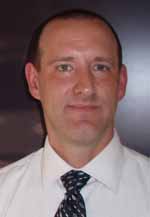 Charles Sturt University (CSU) was invited to be represented at a recent international forum of academics, paramedic service managers, regulators and providers, to discuss the formation of a world-wide organisation to represent the paramedic profession.
Charles Sturt University (CSU) was invited to be represented at a recent international forum of academics, paramedic service managers, regulators and providers, to discuss the formation of a world-wide organisation to represent the paramedic profession.Mr Joe Acker, senior lecturer in paramedicine at the School of Biomedical Sciences at CSU in Bathurst, was one of 17 participants from five nations to attend a two-day meeting in Ottawa, Canada, on 29-30 April, at which a peak body, International Paramedic, was proposed.
Mr Acker said participants at the forum, known as Paramedic G5, were united in their desire to improve how paramedic care is designed and delivered in their respective countries and around the world.
“The Paramedic G5 was committed to the need for a collaborative global community of sharing, partnership and learning, and identified a range of issues and opportunities to improve and evolve the provision of paramedic services, to advance the field of paramedicine, and support the paramedic profession,” he said.
“The Paramedic G5 experts felt that it’s time for leaders of paramedic services to start thinking beyond their specific operational jurisdictions and their national borders, and to plan for the future with aspirations that respect history, reward innovation, provide value, and continually improve the quality of care paramedics provide to patients, and thus the value they provide to communities.”
Mr Acker emphasised the provision of paramedic care is going through continuous change in countries around the world. Patient and healthcare system needs are becoming more and more complex, and paramedics and other emergency medical responders are being called on to meet these needs in innovative ways.
“We asked ourselves, what role should paramedics and emergency medical responders play? Should they be recognised as medical professionals? Is there a need and desire to create a collaborative global entity to ensure that the ever-changing and growing needs of the public and of providers are met in the future?
“Consequently, our vision is to create a virtual organization of paramedics, to be known as International Paramedic, that will organise and analyse data, create a worldwide vision and strategic plan, work to implement the vision globally, and to be a resource for organisations and nations. This is just a starting point, and we expect International Paramedic will evolve as more paramedics join the virtual community.
“We aim to achieve a valued presence within organisations such as the United Nations, the World Health Organization, and other worldwide organizations, by collaborating on a wide range of issues and thus become an effective and trusted global voice of the profession of paramedic practice.





Social
Explore the world of social